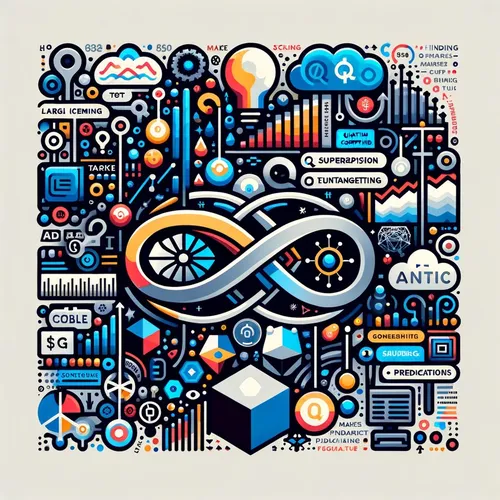Quantum Leap: Roche's Breakthrough in Drug Discovery Rewrites Pharma's Future
- Author
- Inception Point Ai
- Published
- Thu 13 Mar 2025
- Episode Link
- https://www.spreaker.com/episode/quantum-leap-roche-s-breakthrough-in-drug-discovery-rewrites-pharma-s-future--64863912
This is your Quantum Market Watch podcast.
The quantum revolution just took another bold step forward. Today, the pharmaceutical giant Roche announced a breakthrough quantum computing application in drug discovery. This is a game-changer for the industry, bringing us closer to simulating molecular interactions with a level of precision classical computers could never achieve.
Roche, in collaboration with Pasqal, demonstrated how neutral atom quantum processors can model complex protein-ligand interactions faster and more accurately than existing computational methods. This breakthrough means significantly reduced drug development timelines—what once took years could now take months. It’s not just about speed; it’s about unlocking entirely new drug designs that were previously computationally impractical.
Here’s why this matters: Traditional pharma relies heavily on classical simulations to predict molecular behavior, but as the complexity of these molecules increases, even supercomputers struggle. Quantum computers, with their ability to process immense amounts of quantum states simultaneously, can identify optimal drug candidates with unparalleled efficiency. This could revolutionize treatments for diseases like Alzheimer’s or certain aggressive cancers where current trial-and-error approaches fall short.
Beyond pharma, this signals broader implications for life sciences and material sciences. Quantum-driven molecular simulations aren’t just for medicine—they extend to designing better batteries, more efficient catalysts, and even biomaterials. With companies like Moderna also experimenting with quantum-enhanced mRNA modeling, we’re entering an era where computational limits no longer dictate scientific discovery.
Of course, the hardware still needs scaling. Pasqal’s neutral atom approach has shown promise in error rates and scalability compared to superconducting qubits, but we’re not at universal fault tolerance yet. Still, with advancements in quantum error correction from companies like IBM and Quantinuum, we’re inching closer to practical commercial applications.
The market reaction? Biotech stocks tied to quantum computing surged in after-hours trading. Investors are seeing what industry insiders have talked about for years—the transition from theoretical promise to tangible impact. Roche’s announcement isn’t a one-off; it’s the first in what will likely be a wave of real-world applications proving quantum advantage.
This isn’t the future anymore—this is happening now. The sectors that embrace quantum today will lead tomorrow. Pharma just took the leap. Who’s next?
For more http://www.quietplease.ai
Get the best deals https://amzn.to/3ODvOta
This content was created in partnership and with the help of Artificial Intelligence AI
